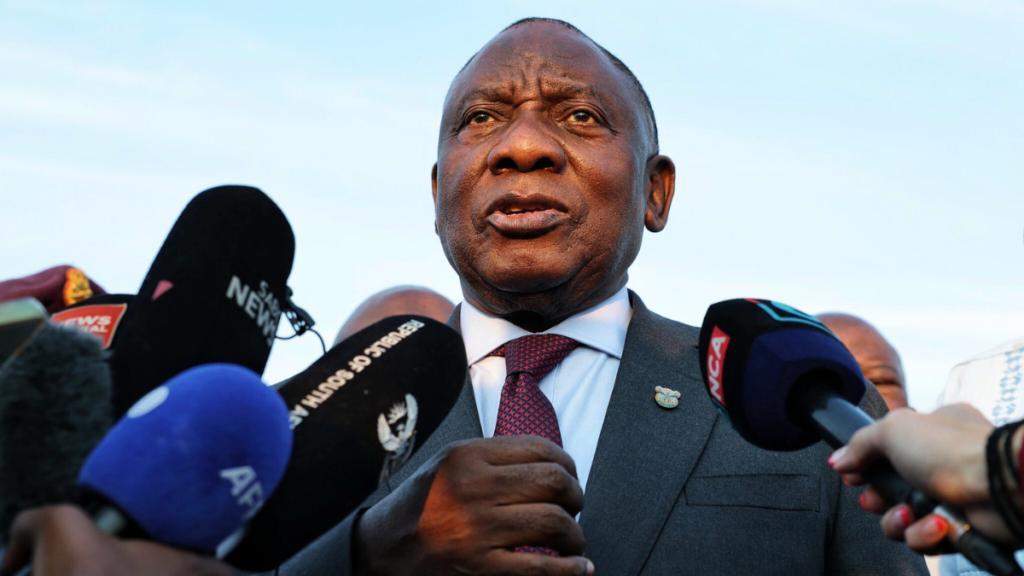Africa-Press – South-Africa. The Presidency has distanced itself from the estimated R700 million price tag for a National Dialogue set to take place in August this year.
This comes after the projected cost sparked backlash from trade unions, political parties, academics, and civil society groups.
They criticised the costs amidst South Africa’s current climate of austerity, ailing service delivery, a stagnant economy and deepening inequality.
Very broadly, the National Dialogue is a government-led process proposed by President Cyril Ramaphosa to bring South Africans together to talk about the country’s biggest problems like poverty, unemployment and corruption, and come up with solutions.
The dialogue will unfold in phases, starting with local consultations and culminating in a National Convention on August 15, 2025.
A second convention is planned for early 2026 to formalise a new national compact.
An Eminent Persons Group will guide the process, including Springbok captain Siya Kolisi, Judge Edwin Cameron, peace activist Ela Gandhi, Banyana coach Desiree Ellis, and more.
Ramaphosa said the dialogue builds on South Africa’s tradition of consensus to chart a new development path, with input from all sectors and coordination by government and NEDLAC.
Dialogue Task Team chair Nkosinathi Biko, executive trustee of the Steve Biko Foundation, said in a press briefing that “democracy is not cheap, building a nation is very costly.”
“We’re going to go to the ministerial committee where we present the draft budget, and then we’ll workshop that budget and just to pull the provinces, municipalities—you are looking probably at an estimation of more than R700 million.”
However, this estimation caused a firestorm across trade unions, political parties, academics, and civil society.
ActionSA President Herman Mashaba has called it a wasteful exercise with little promise of meaningful outcomes.
The party argues that funds should instead strengthen the criminal justice system and tackle unemployment.
It also warned that the dialogue risks becoming another PR stunt serving politically connected elites.
However, Biko said that the National Dialogue must avoid becoming “just another talk shop” amid widespread public cynicism and fatigue.
To address this, Biko stated that an action plan is being developed, incorporating independent, participatory monitoring and evaluation to ensure transparency and accountability.
Dialogue Task Team chair Nkosinathi Biko. Photo: X/BikoFoundation
Presidency responds
The backlash has led Presidential spokesperson Vincent Magwenya to downplay concerns over the reported R700 million cost, describing these discussions as “premature” and “unfortunate.”
In an interview on The Morning Brief FM, he said that “we don’t have a budget at this point.”
“Government is yet to formulate the budget that will then go through all the necessary and stipulated budgetary processes before we can come out to the public and say, here’s what it’s going to cost you,” Magwenya said.
Finance minister Enoch Godongwana, in tabling the 2025/26 national budget, included the dialogue as one of six unfunded spending priorities.
“This is not President Ramaphosa’s project. This is South Africa’s undertaking to go back to the drawing board and engage and discuss what kind of country we would like to see over the next many years to come,” said Magwenya.
He said that while they “absolutely appreciate the concerns, and understand where the concerns are coming from,” he said that the debate over R700 million “is completely misplaced and completely unnecessary.”
Magwenya indicated that the government intends to keep costs down by making use of existing public infrastructure, such as the SABC and municipal facilities, to maximise reach and participation.
He noted that incorporating technologies that amplify public voices, like the national broadcaster, is central to the budgeting approach.
He also said alternative funding options are being explored, provided they do not undermine the credibility of the dialogue.
For More News And Analysis About South-Africa Follow Africa-Press






